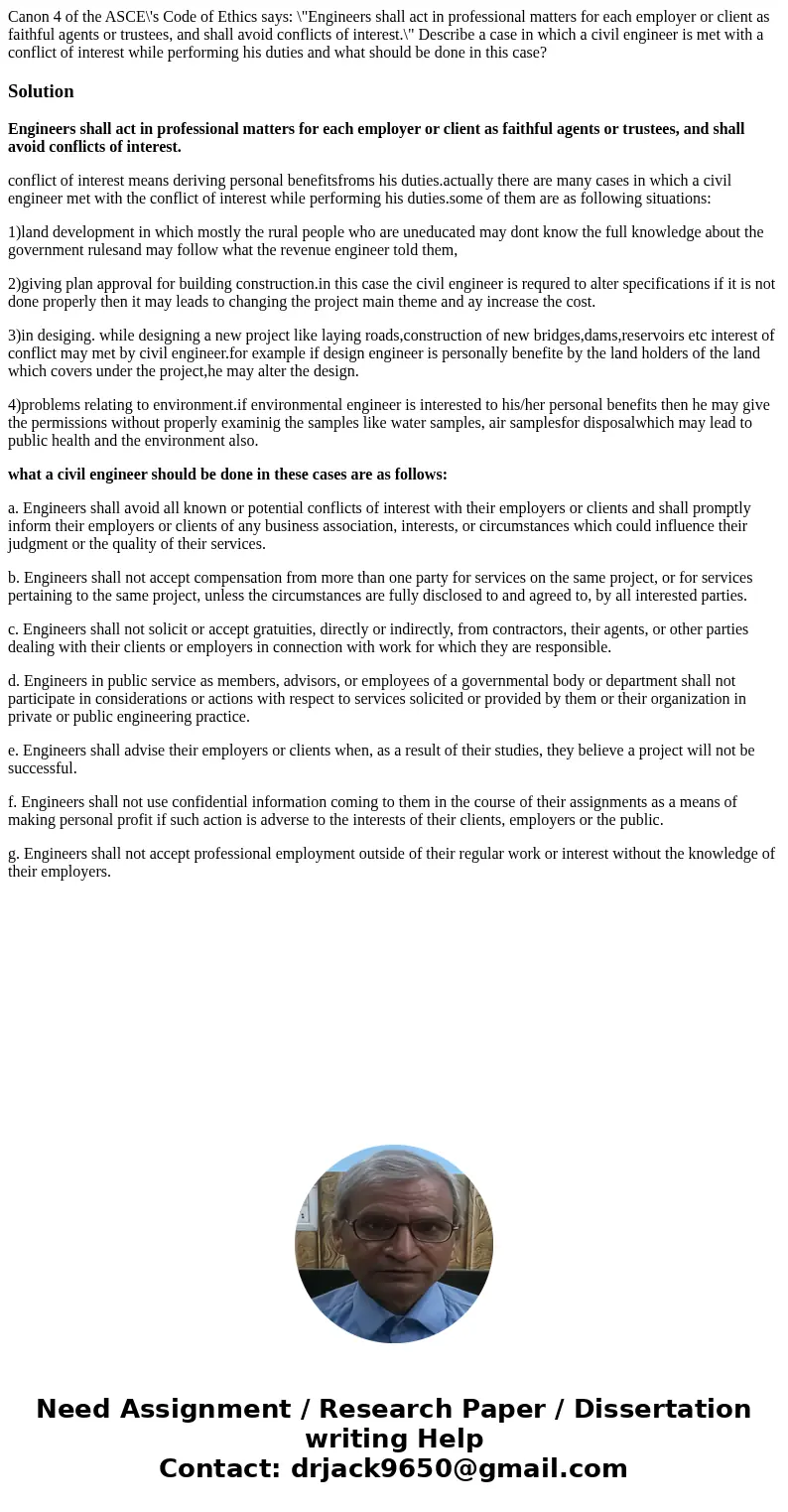Canon 4 of the ASCEs Code of Ethics says Engineers shall act
Canon 4 of the ASCE\'s Code of Ethics says: \"Engineers shall act in professional matters for each employer or client as faithful agents or trustees, and shall avoid conflicts of interest.\" Describe a case in which a civil engineer is met with a conflict of interest while performing his duties and what should be done in this case?
Solution
Engineers shall act in professional matters for each employer or client as faithful agents or trustees, and shall avoid conflicts of interest.
conflict of interest means deriving personal benefitsfroms his duties.actually there are many cases in which a civil engineer met with the conflict of interest while performing his duties.some of them are as following situations:
1)land development in which mostly the rural people who are uneducated may dont know the full knowledge about the government rulesand may follow what the revenue engineer told them,
2)giving plan approval for building construction.in this case the civil engineer is requred to alter specifications if it is not done properly then it may leads to changing the project main theme and ay increase the cost.
3)in desiging. while designing a new project like laying roads,construction of new bridges,dams,reservoirs etc interest of conflict may met by civil engineer.for example if design engineer is personally benefite by the land holders of the land which covers under the project,he may alter the design.
4)problems relating to environment.if environmental engineer is interested to his/her personal benefits then he may give the permissions without properly examinig the samples like water samples, air samplesfor disposalwhich may lead to public health and the environment also.
what a civil engineer should be done in these cases are as follows:
a. Engineers shall avoid all known or potential conflicts of interest with their employers or clients and shall promptly inform their employers or clients of any business association, interests, or circumstances which could influence their judgment or the quality of their services.
b. Engineers shall not accept compensation from more than one party for services on the same project, or for services pertaining to the same project, unless the circumstances are fully disclosed to and agreed to, by all interested parties.
c. Engineers shall not solicit or accept gratuities, directly or indirectly, from contractors, their agents, or other parties dealing with their clients or employers in connection with work for which they are responsible.
d. Engineers in public service as members, advisors, or employees of a governmental body or department shall not participate in considerations or actions with respect to services solicited or provided by them or their organization in private or public engineering practice.
e. Engineers shall advise their employers or clients when, as a result of their studies, they believe a project will not be successful.
f. Engineers shall not use confidential information coming to them in the course of their assignments as a means of making personal profit if such action is adverse to the interests of their clients, employers or the public.
g. Engineers shall not accept professional employment outside of their regular work or interest without the knowledge of their employers.

 Homework Sourse
Homework Sourse